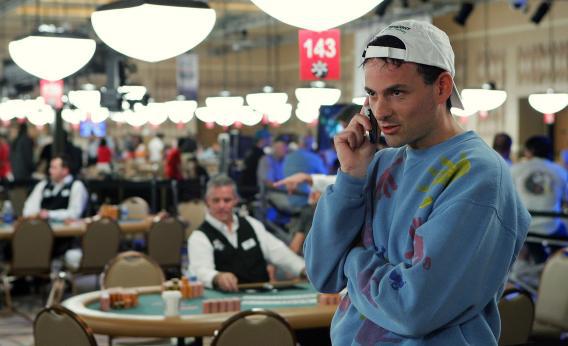Apple’s price-to-earnings ratio is hovering at around 10, which is a low number. What’s more, Apple’s cash on hand represents over a third of its market capitalization, giving them a high cash-to-stock value ratio. If you assume each dollar of cash Apple has is worth $1, that means the “real” value the market is putting on the non-cash parts of the company is much lower than that. Alternatively, the market may be sharply discounting the value of Apple’s cash. Perhaps investors believe the money will be wasted at some point down the road.
David Einhorn, whose Greenlight Capital owns about 0.12 percent of Apple (which is a lot, relatively speaking—it’s a very widely held company) thinks he has a plan to resolve this. He wants the company to issue $50 billion worth of “preferred shares” that will pay a guaranteed 5 percent dividend in perpetuity. This is supposed to preserve the existence of the cash stockpile in the short-term (which Apple management claims gives it valuable strategic flexibility) while credibly committing the company to pay out its profits over the long term. Einhorn and Henry Blodget debated whether this would actually work.
But the news of the day is that Apple is moving to amend its corporate charter to prohibit the creation of such shares, and Einhorn is now trying to take legal action to block them from doing that. Beyond the investment strategy debate, there’s a great issue here as to whether the “disgorge the cash” mentality that Einhorn reflects is socially optimal.
In many cases I would argue that no, it isn’t. Microsoft’s shareholders would probably be better off if, years ago, the company had simply decided to ride out Windows/Office for as long as possible and kick the profits back as dividends. But the social returns to Redmond’s decision to not go gentle into that good night have been large. Microsoft hasn’t made any money creating Bing, but it has done consumers all around the world a huge favor in keeping Google honest. And Google’s fear that Windows Mobile would somehow lock it out of the mobile search marketplace was the initial impetus for the Android project. Android, too, doesn’t necessarily look like a great dollars-and-cents investment for Google, but it’s been fantastic for the broader world. Back in the day, we got R&D divisions like Xerox PARC and Bell Labs out of a similar “waste” of shareholder value.
So from my view, the problem with Apple’s cash is the reverse of Einhorn’s. They’re not wasting it aggressively enough. The company’s fastidious approach means they’re not going to blow $40 billion on trying and possibly failing to bring an autonomous car to market. They’re not investing in the creation of original programming the way Netflix is. They’re not running near-zero profit margins like Amazon. They’re just making lots of money, perhaps because Tim Cook watched The Corporation or read an Introduction to Microeconomics textbook and got it into his head that maximizing profits is what companies do. Which is kind of sad. They’re obviously really smart people and I bet they could make some cool stuff—and even come up with some plausible-sounding reasons for doing it—if they would just relax a bit.
